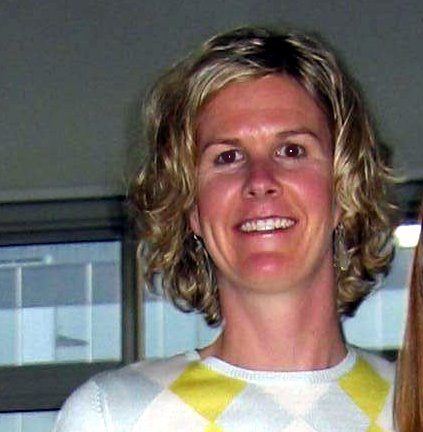More about Baphumelele
 “Baphumelele” in Xhosa means “progress,” which is what Rosalie Mashale hoped it would bring to the community of Khayelitsha. In 1989, Rosie, who had just moved from the Eastern Cape of South Africa to Khayelitsha, witnessed unsupervised young children rummaging through garbage searching for food while their parents worked. Rosie decided to take the children into her home during the day and by the end of the first week, had 36 children there. Thus, began her crèche, Baphumelele, a day care for infants and toddlers. The crèche part of Baphumelele now has about 230 children aged 3 ½ to 6 years, about 20 of which live at the Baphumelele Children’s Home, where I currently volunteer. Last week Baphumelele launched a great new website (www.baphumelele.org.za); the pictures of the children you see on it are ones with whom I am currently working.
“Baphumelele” in Xhosa means “progress,” which is what Rosalie Mashale hoped it would bring to the community of Khayelitsha. In 1989, Rosie, who had just moved from the Eastern Cape of South Africa to Khayelitsha, witnessed unsupervised young children rummaging through garbage searching for food while their parents worked. Rosie decided to take the children into her home during the day and by the end of the first week, had 36 children there. Thus, began her crèche, Baphumelele, a day care for infants and toddlers. The crèche part of Baphumelele now has about 230 children aged 3 ½ to 6 years, about 20 of which live at the Baphumelele Children’s Home, where I currently volunteer. Last week Baphumelele launched a great new website (www.baphumelele.org.za); the pictures of the children you see on it are ones with whom I am currently working.Baphumelele has grown from that original crèche in Rosie’s home to encompass a full block in Khayelitsha. It includes the Children’s Home which houses children in two buildings, the “America House” with approximately 40 children from infants to toddlers and the “Clemens House” with another approximately 40 children from aged 6 to 19 years. The children who arrive here are orphaned, abandoned and/or abused. The Children’s Home is the only orphanage in Khayelitsha for children over the age of 8 years, and the children live under very cramped conditions. In the America House, two rooms have cribs lined-up along each wall and, in a third room there, the older toddlers sleep on foam mattresses, body next to body. In Clemens House, the boys sleep in bunk beds jammed into small rooms on the first floor and the girls sleep on the second floor. Each house employs two shifts of full-time care workers, a day shift and evening shift that rotates, who care for the children 24 hours a day.

Just recently, Elton John’s AIDs Foundation donated money for Rosie to build “cluster houses” on the block. There are 4 cluster houses of which one has already been occupied by a family of 5 children and a full-time careworker. The idea with the cluster houses, small single family homes, is to try to keep families together in a real home-like environment. For instance, they eat their meals at the cluster home rather than go to the dining room located in another building, under the volunteer suite, on the block.
Also, Baphumelele has several community-based projects, a theme very important to the vision of Rosie and to the Xhosa culture. It recently added a wood workshop, where men from the community are employed to make wonderful wooden beach chairs - really, these are some I would put out at any Hamptons home! Rosie also operates a kitchen for community members and a second hand shop, all on one block in Dabula Street, Khayelitsha. And, she is in the process of a building an HIV/AIDs Respite Center across the street from the dining room/volunteer house where she will take in adults suffering from HIV/AIDs who have been ostracized by their own family. So, Rosie has definitely made A LOT of progress in Khayelitsha over the past decade, but I'm sure I don't have to tell you how much more must be done.
Again, see the new website for more information on all of this!

Pictured: Billboard of Rosie at one corner of Dabula Street in Khayelitsha were Baphumelele is located; looking down Dabula Street, the 2nd floor of the pink building is where I and the other volunteers reside; my view of Khayelitsha from the door of the volunteer apartment.



<< Home